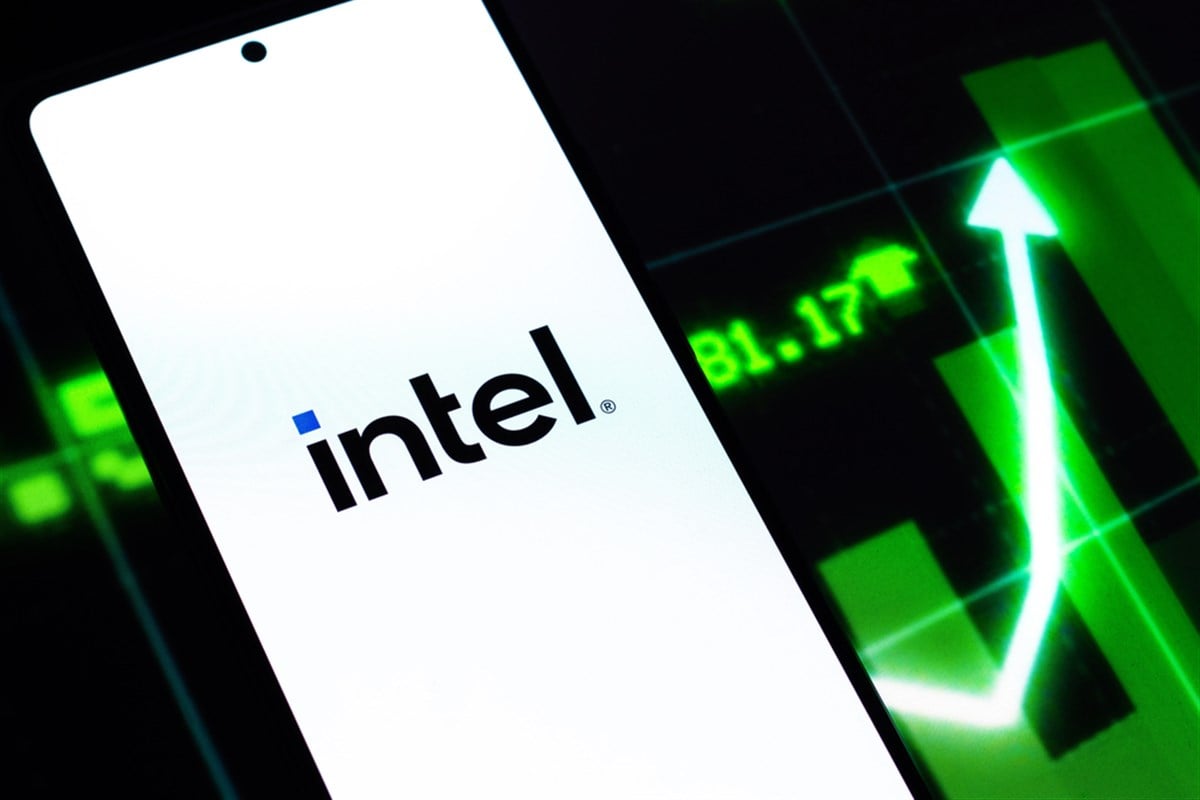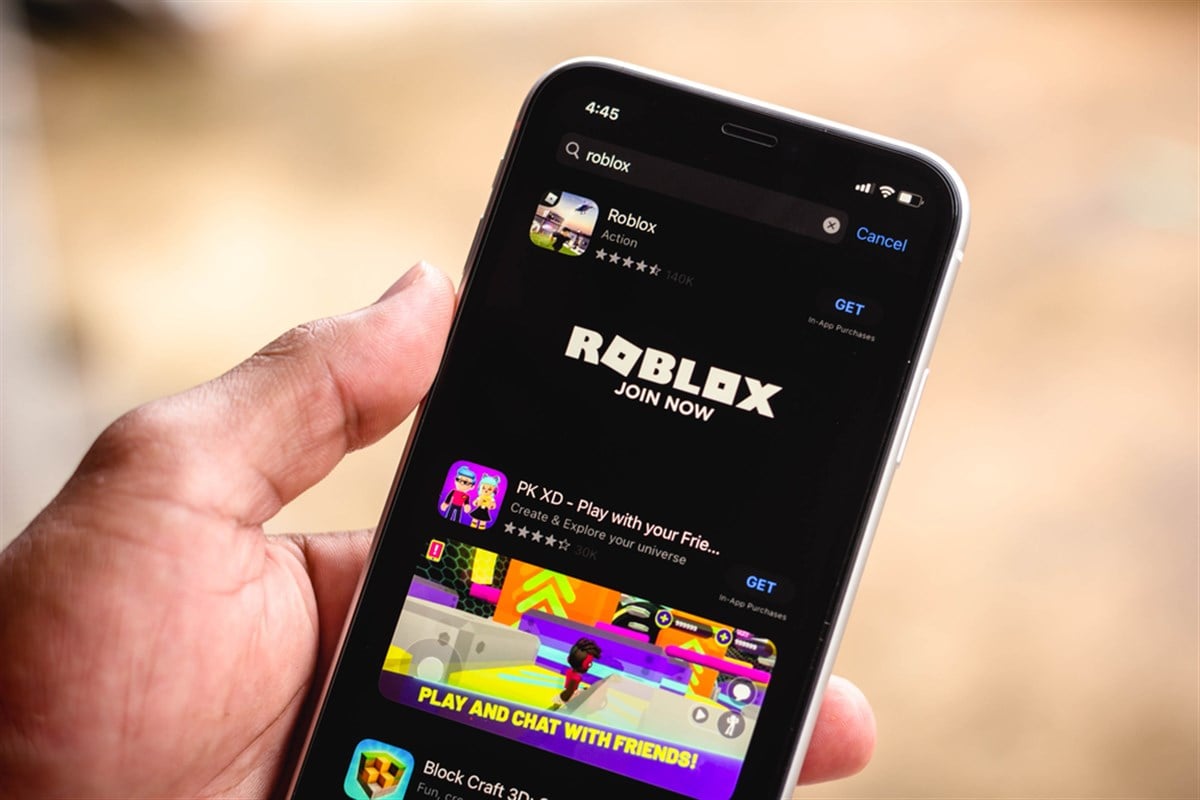Prediction Markets Are Coming: Can DraftKings & FanDuel Survive?
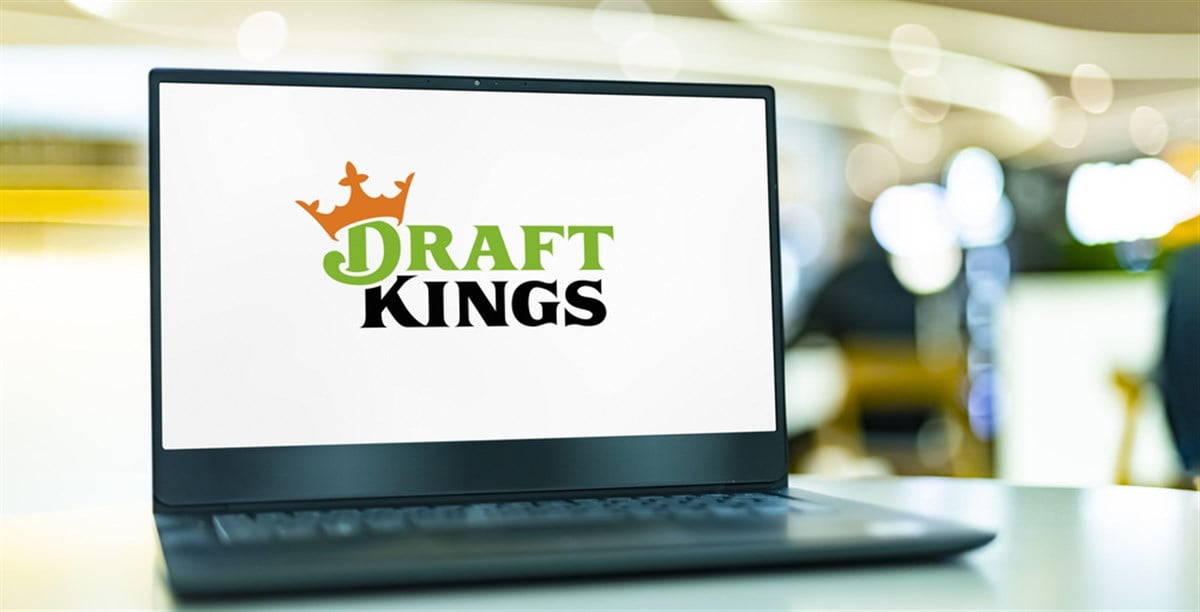
The NBA regular season got off to an inauspicious start last week when news of a massive FBI gambling probe hit, resulting in the arrests of several high-profile players and coaches.
Numerous high-profile athletes have been involved in betting investigations since sports betting went mainstream in the United States, and despite the apprehension from professional and collegiate sports leagues, 39 states (plus D.C. and Puerto Rico) have now legalized the practice.
Betting is about to become even more ubiquitous because sports books are facing a new challenge: prediction markets, which offer a chance to wager on everything—from sports to politics to entertainment to weather. Today, we’ll look at the advantages that prediction markets have against traditional sports books, and what online books like DraftKings and FanDuel are doing to fight back.
If you’re tired of seeing FanDuel commercials every 10 minutes during a game, you might want to close your eyes for what comes next.
Prediction Markets Offer More Bets With Improved Tax Efficiency
The two primary prediction markets available to U.S. clients are Kalshi and Polymarket, which now offer their services through brokerage apps like Robinhood Markets Inc. (NASDAQ: HOOD). Melding the worlds of positive-sum investing and zero-sum betting has been a boon to market makers, as Kalshi’s internal documents show that annual volume has surged. In 2024, Kalshi reported total trading volume of about $300 million. Today, Kalshi frequently trades more than $200 million in a single day.
The most significant advantage of prediction markets like Kalshi over sportsbooks like DraftKings Inc. (NASDAQ: DKNG) and FanDuel parent Flutter Entertainment plc (NYSE: FLUT) is their favorable stance with U.S. regulators.
Betting on Kalshi involves event contracts, which are federally regulated and supersede state gambling commission rules.
Event contracts fall under the umbrella of Section 1256 contracts, which treat profits like index futures rather than bets.
If you predict the Dodgers to win the World Series through Kalshi, your winnings will be taxed at the hybrid 60/40 long-term/short-term capital gains rate.
A winning ticket at a sports book will be taxed as ordinary income, so event contracts offer bettors a way to keep more of their profits out of the hands of the IRS.
Additionally, losses on event contracts can be written off in excess of total profits. For example, if you bet on the Blue Jays to win the World Series and lost $10,000, you can deduct the full amount of your loss against any gains, plus $3,000 in ordinary income. Plus, any net loss exceeding $3,000 can be carried over to the following year.
For sports book bettors, losses can be deducted only from matching profits in the same year. Recent legislation reduced the deduction of betting losses from 100% to 90%, making the typical betting ticket much less tax-efficient than an event contract.
Other factors benefiting prediction markets over online sports books include:
- Lower Fees: When you buy an event contract from a prediction market, you aren’t playing against "the house" like at the casino. Your opponents are the people on the other side of the trade, and the market maker charges a small commission on each contract. Typically, this commission is lower than the vig (or juice) built into betting odds with a traditional sports book, which ensures the house takes a cut of all tickets sold.
- More Choices: DraftKings lets you bet on any sport, but athletics is the only category available. Prediction markets enable clients to wager on a range of topics, including politics, entertainment, and economics. Prediction markets are even getting into the parlay game, where bettors can combine multiple events into a single ticket to increase payouts. (Author's note: Parlays are negative expected value bets and the quickest way to lose money betting on sports, which is why all the gambling commercials and promos push them. It may be best to avoid doing parlays.)
- Fewer Restrictions: Sports betting is regulated by individual state gambling commissions, which is why it's only legal in 39 states for people aged 21 and over. Event contracts are regulated by the Commodity Futures Trading Commission (CFTC), which means they’re legal in all U.S. states and territories for anyone over 18.
Ugly Stock Charts Highlight 2H Struggles of DKNG and FLUT
Online sportsbooks aren’t exactly pinching pennies yet, but the pressure is mounting. Both DraftKings and Flutter reported top and bottom-line earnings beats in Q2, and revenue growth is expanding at a double-digit rate.
Profitability remains a separate mountain to climb, though. DKNG reported an annual loss of over $500 million in 2024, and FLUT produced just $43 million in profits against nearly $15 billion in total 2024 revenue. High overhead costs, along with competition from companies with cozier regulatory relationships, appear to be weighing on DKNG and FLUT shares.
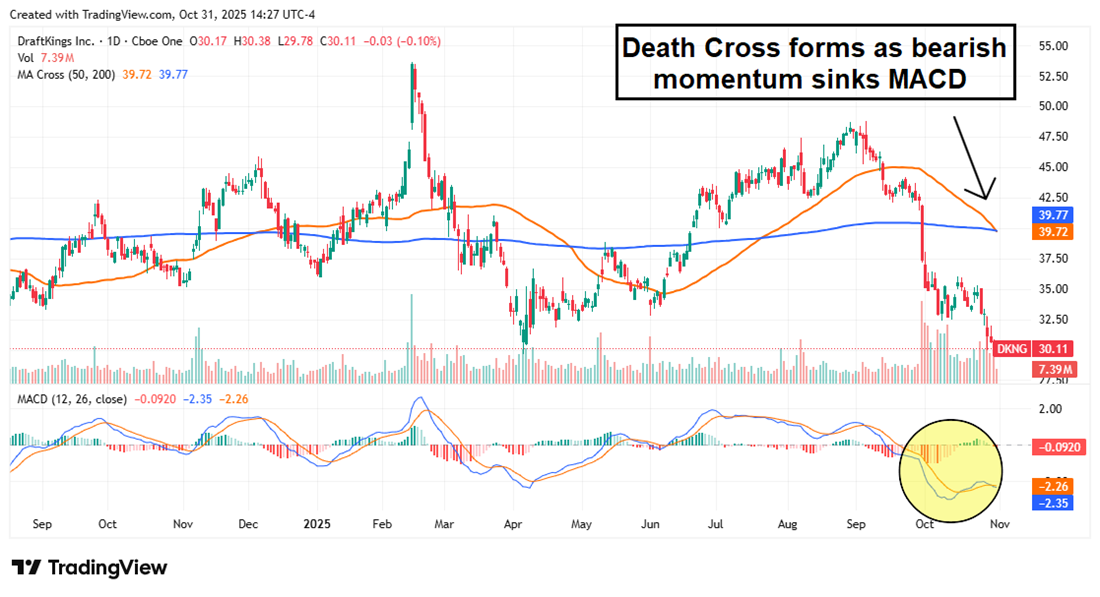
DKNG shares have plunged below the 50-day and 200-day simple moving averages (SMAs) and recently formed a Death Cross, a bearish technical signal. The stock is now down 30% in the last month alone, and currently trades at levels last seen in November of 2023.
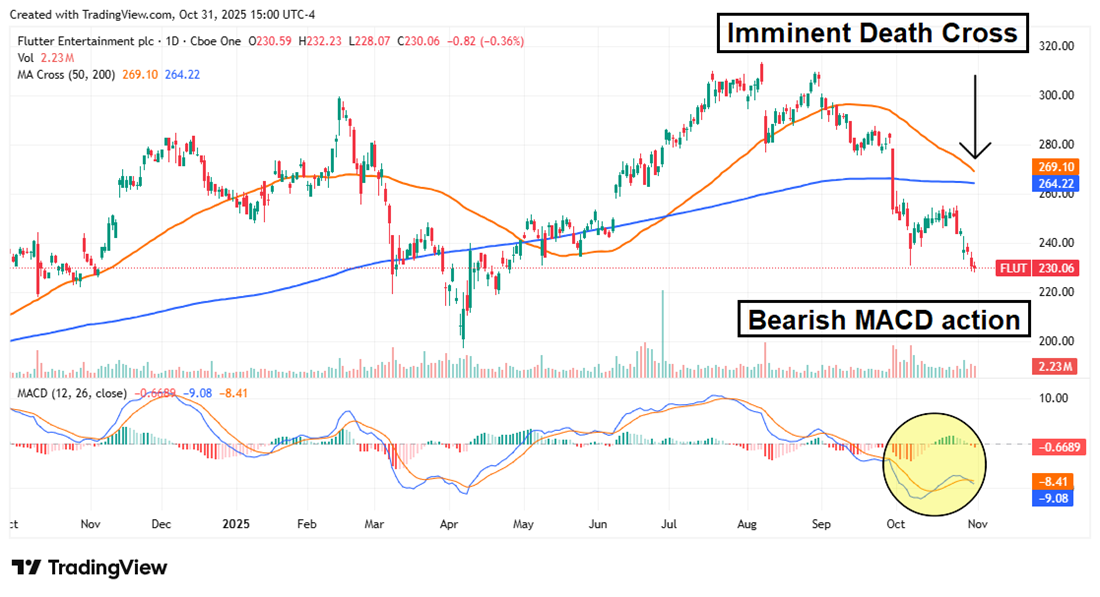
FLUT has a better balance sheet, and stronger financials have shielded its stock from a DKNG-like breakdown. But the bearish momentum is accelerating, and FLUT is down more than 10% year-to-date (YTD). The moving average convergence divergence (MACD) confirms the bearish trend in these stocks, and it will likely take a new catalyst to reverse it. Considering the headwinds facing sports books right now, it's hard to recommend stocks in the sector.
Learn more about FLUT

